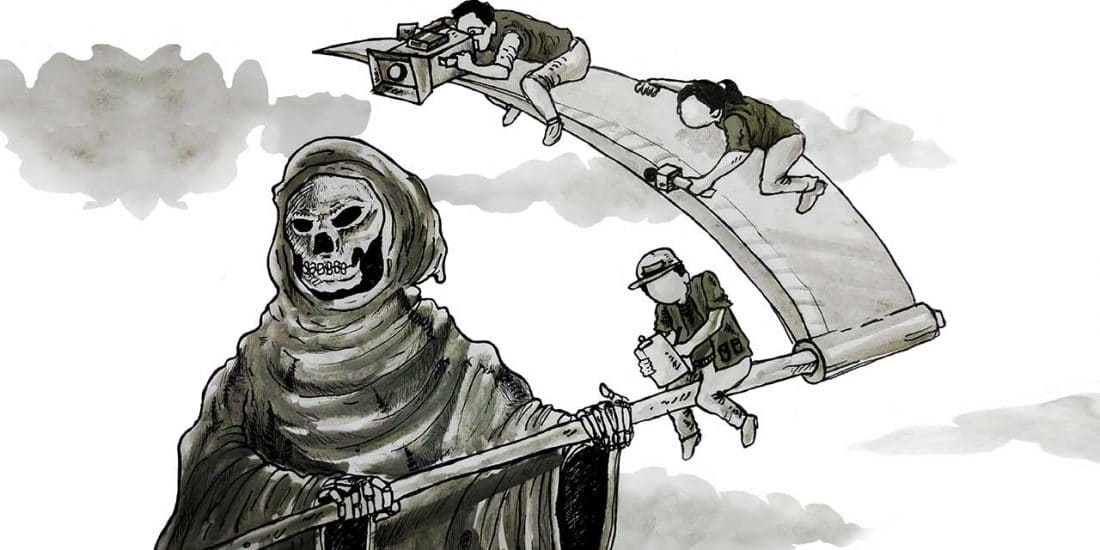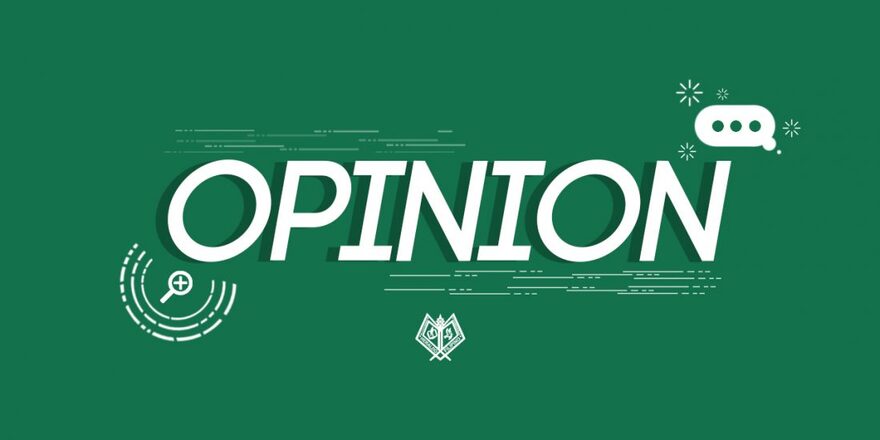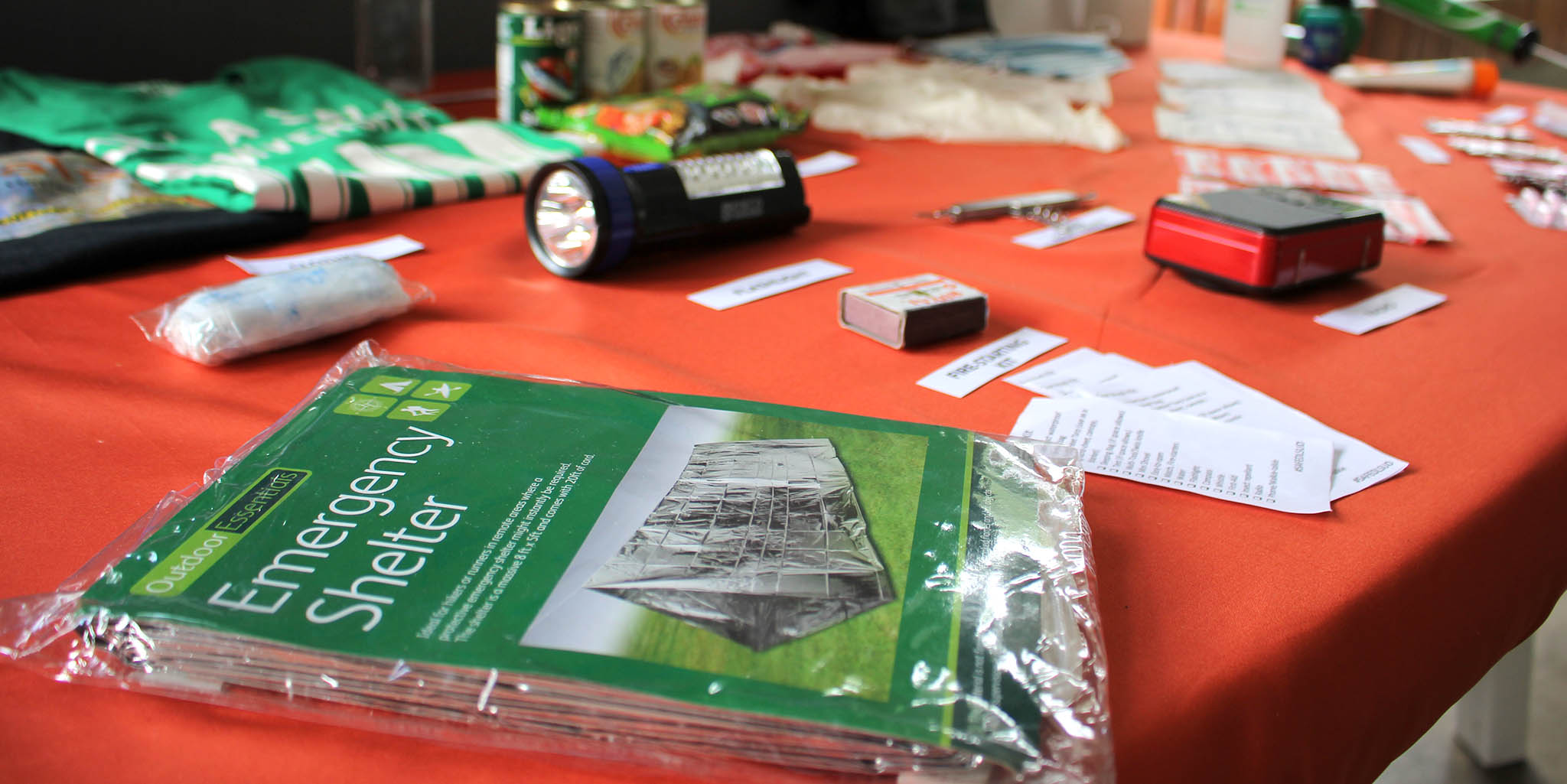A noble fight
I have always found journalism’s mission noble in relentlessly serving the people as a bridge between the state and the people—that’s why I took up Broadcast Journalism. With this fearless drive to be like some invincible comic book superhero in spandex, I believed that journalists ought to be righteous advocates fighting for the good of the nation. But since then, I’ve been overrun with concerns about my wellbeing, as if being a journalist was a highway to hell—I can’t blame them, of course. I was, after all, playing with fire in the second most dangerous country for journalists. See, I grew up and realized that I was fantasizing the frontage of journalism without actually understanding its flawed context in our country to begin with.
Before President Rodrigo Duterte’s inauguration, netizens created a hurricane of contradicting convictions about the president’s statement that corrupt journalists deserve to be killed. Aware of Duterte’s scandalous and unfiltered statements, I was alarmed; but giving our president the benefit of the doubt, I chose to stay on the fence. Truth be told, denying journalists’ corruption is as futile as denying politicians’ corruption in our country. The people’s supposedly collective voice in the media tends to be lost and replaced by one voice that’s bribed to tell the story as the buyer pleases.
Regretfully, the messed-up plight of journalists today is far from the mission of the fearless revolutionary writers of a century ago. Looking back to the age when Filipino writers fought with their pens against the tyranny of the Spanish, I can’t help but be amazed by how they enthused citizens to stand with them despite the relatively unrecognized freedom of the press during that time. As history has taught us, if the government has the power to irrationally control the people, the citizens can look to journalism as their weapon. Through time, however, the weapon for the destruction of the corrupt became the corrupts’ weapon for mass destruction. And it continues to proliferate until today.
“…there is nothing wrong with journalism, but there is something wrong with journalists.”
Media insiders reckon that about 85 percent of Filipino journalist are corrupt, according to a Rappler article. This number haunts Filipinos as veteran investigative journalist Raissa Robles admitted in her blog raissarobles.com that she was bribed a huge amount of money almost four times in her career by government officials. Transforming journalists into campaign puppets, politicians have found sneaky ways to market themselves: journalist and author of News for Sale, Chay Florentino-Hofileña disclosed that a large amount of campaign budgets before elections were paid off to journalists to add a little (bias) fictional touch to campaign-related news articles and columns.
Without the intention of generalizing, there is nothing wrong with journalism, but there is something wrong with journalists. The way I see it, some journalists take advantage of their freedom of press, making way for corrupt practices and personal gain, and eventually destroying the spirit of journalism. Now, I can’t put the president at fault for being brutally honest, because we can’t rebuff that journalism has its own slipups.
There is undeniable power in words as playwright Tom Stoppard believed journalism can be an immediate weapon to change the world; but it’s also the same power that makes media corruption rampant. So if the media—being the fourth pillar of democracy—buries its ethics, then the nation’s integrity will be buried with it as well. As what fictional photojournalist-turned-superhero Peter Parker said, “With great power, comes great responsibility,” and professional journalists as well as citizen journalists have a great duty in making sure that a balance exists between both.
***
I’ve had so much doubt in my writing that there are still times I submerge myself into thinking I’m not good enough to be studying journalism. But looking at the bigger picture, mastery in technicalities won’t matter much without a journalist’s heart for service and integrity—just like the way journalists Kent Clark and Peter Parker served humanity as my favorite superheroes Superman and Spiderman.
As English writer George Orwell once put it, “In a time of universal deceit—telling the truth is a revolutionary act.” The whole idea of being a journalist isn’t solely about fighting to get the latest stories: it’s about fighting to expose the truth that is long deprived from people—an obviously risky task today, but that’s what makes them noble. As citizen journalists, every word and information we let out plays a part in every battle of our nation. So we need to realize that journalism has an immense power to drive change, and as long as we write with deep-seated honor and nobility, neither money nor opinion can ever replace the truth, nor kill the spirit of journalism.





